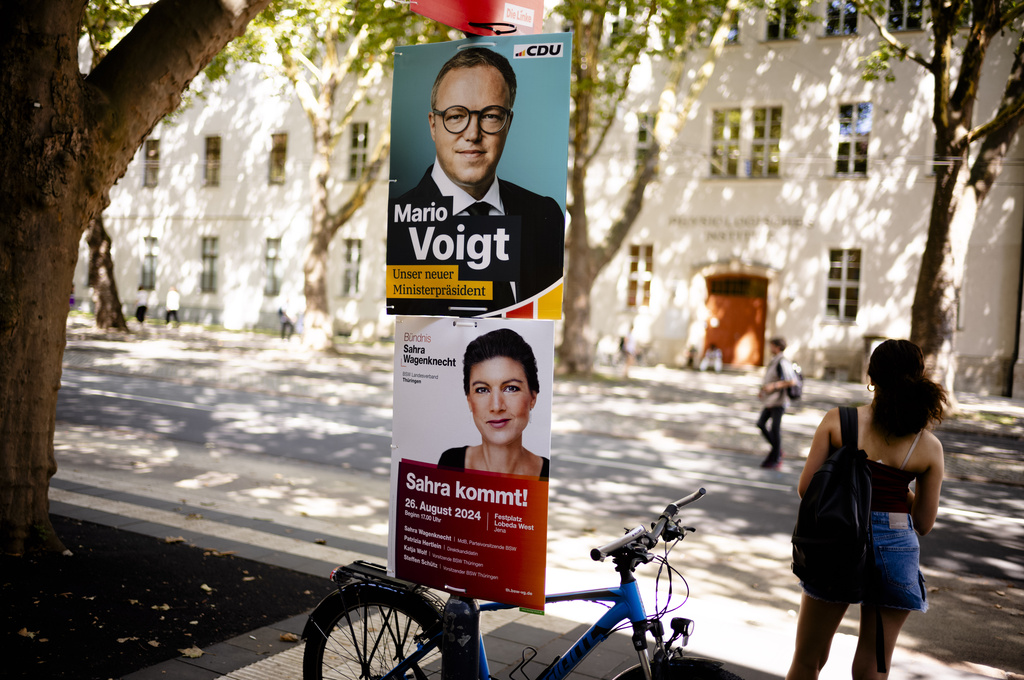The far-right Alternative for Germany (AfD) party achieved a historic victory on Sunday, winning its first-ever state election in Thuringia and performing strongly in neighboring Saxony, according to projections based on exit polls and partial counting.

In Thuringia, AfD was projected to win 32-33% of the vote, significantly outperforming the center-right Christian Democratic Union (CDU), which garnered about 24%. In Saxony, projections showed the CDU narrowly leading with 31.7%, closely followed by AfD with 30.6-31.4%.
The elections also saw the debut of the Sahra Wagenknecht Alliance (BSW), a new left-wing party, which made an immediate impact, projected to secure up to 16% in Thuringia and 12% in Saxony.
Omid Nouripour, a leader of the Greens party, expressed deep concern, stating, “An openly right-wing extremist party has become the strongest force in a state parliament for the first time since 1949, and that causes many people very deep concern and fear.”
AfD co-leader Alice Weidel hailed the results as a “historic success” and a “requiem” for Chancellor Olaf Scholz’s coalition. However, other parties have reiterated their refusal to form coalitions with AfD, with CDU national general secretary Carsten Linnemann stating, “Voters in both states knew that we wouldn’t form a coalition with AfD, and it will stay that way — we are very, very clear on this.”

Chancellor Scholz’s Social Democrats performed poorly, barely maintaining representation in both state legislatures. The Greens faced potential loss of seats in Thuringia, while the Free Democrats were set to lose their seats there.
The Left Party, particularly in Thuringia, saw a significant decline, losing nearly two-thirds of its previous support. This shift was partly due to the formation of the BSW by former Left Party figure Sahra Wagenknecht, who celebrated her new party’s “unprecedented success.”
These results reflect growing discontent with the national government, anti-immigration sentiment, and skepticism toward German military aid for Ukraine. AfD has tapped into high anti-immigration sentiment, particularly in the eastern region where it is strongest.
The domestic intelligence agency has placed AfD’s branches in both Saxony and Thuringia under official surveillance as “proven right-wing extremist” groups. In Thuringia, AfD leader Björn Höcke has been convicted of knowingly using a Nazi slogan at political events, though he is appealing the decision.
As Germany prepares for another state election in Brandenburg in September and a national election next year, these outcomes signal potential shifts in the country’s political landscape and are likely to intensify debates on immigration policy and Germany’s stance on the Ukraine conflict.



